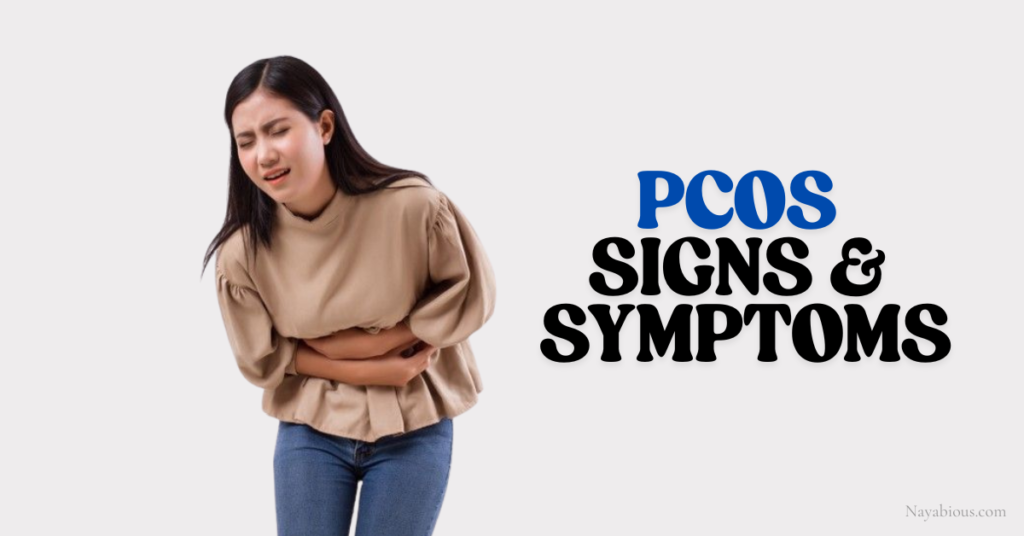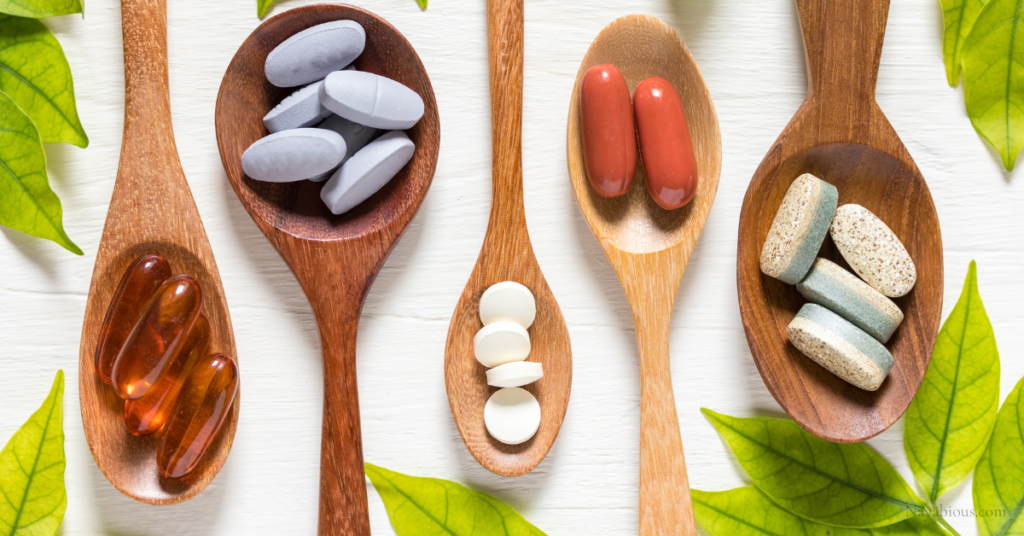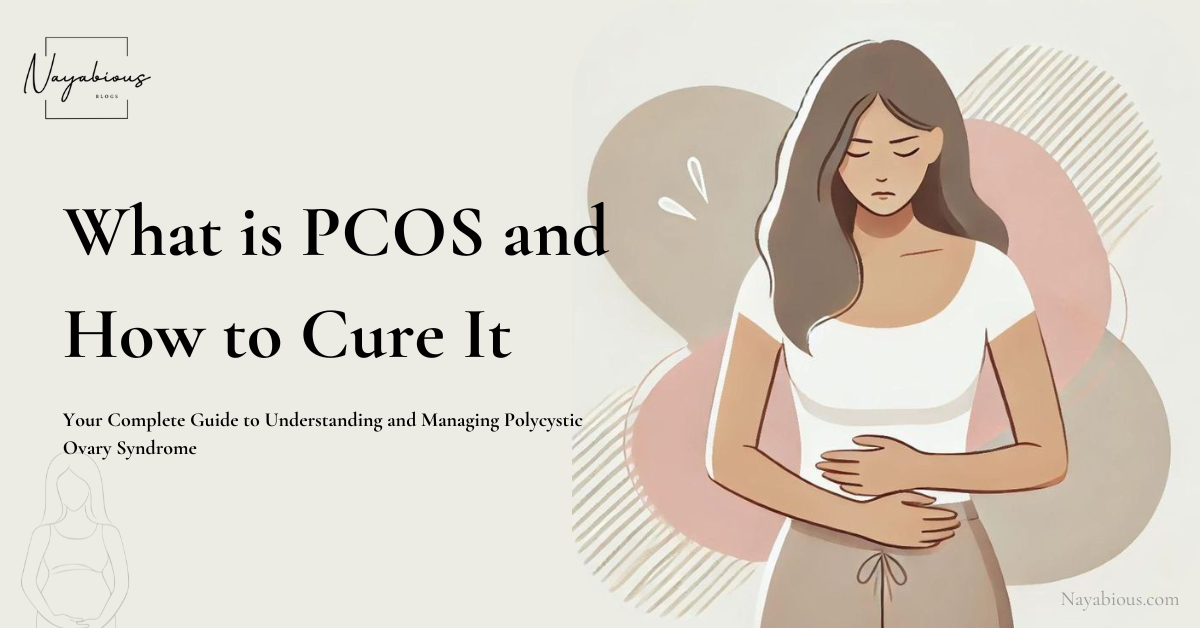What is PCOS and How to Cure It: Your Complete Guide to Understanding and Managing Polycystic Ovary Syndrome
Polycystic ovary syndrome (PCOS) is a common hormonal disorder affecting women of reproductive age. It is characterized by hormonal imbalances, irregular periods, and the development of small cysts on the ovaries. Let’s discuss about it and PCOS cure.
Understanding “what is PCOS and how to cure it” is essential for women looking to manage their symptoms and improve their quality of life. This article provides an in-depth overview of PCOS, including its symptoms, causes, and the best approaches for treatment and management.
Understanding PCOS
To grasp what is PCOS and how to cure it, it’s important to understand how it affects the body. PCOS is a hormonal imbalance that impacts the ovaries, often leading to irregular egg release. This can cause fluid-filled follicles to form in the ovaries, leading to various symptoms and health concerns.

Signs & Symptoms of PCOS
Identifying the symptoms is the first step in understanding what is PCOS and how to cure it. Common symptoms include:
- Mental health issues: Anxiety and depression.
- Irregular periods: Infrequent, prolonged, or heavy periods.
- Excess androgen: High levels of male hormones, leading to excess facial and body hair (hirsutism), severe acne, and male-pattern baldness.
- Polycystic ovaries: Enlarged ovaries containing numerous small follicles surrounding the eggs.
- Weight gain: Difficulty losing weight or unexplained weight gain, particularly around the abdomen.
- Skin problems: Acne, dark patches of skin (acanthosis nigricans), and skin tags.
- Thinning hair or male-pattern baldness: Hair loss on the scalp.
- Fertility problems: Difficulty getting pregnant or infertility.
- Sleep apnea: Disrupted sleep patterns.
Recognizing these symptoms is key to understanding what is PCOS and how to cure it.
Causes and Risk Factors
The exact cause of PCOS is not fully understood, but several factors may contribute to its development:
- Insulin resistance – High insulin levels can increase androgen production, leading to PCOS.
- Genetics – A family history of PCOS increases the risk.
- Low-grade inflammation – Chronic inflammation may trigger the ovaries to produce more androgens.
- Excess androgen production – The ovaries may produce unusually high levels of androgens, disrupting hormonal balance.
Understanding these risk factors is important for anyone wanting to know what is PCOS and how to cure it.
Diagnosing PCOS
Diagnosing PCOS involves several steps:
- Medical history: Discussing symptoms and menstrual cycles.
- Physical examination: Checking for signs of excess androgen, such as hirsutism and acne.
- Pelvic exam: Checking for enlarged ovaries.
- Blood tests: Measuring hormone levels, including androgens and insulin.
- Pelvic ultrasound: Visualizing the ovaries to check for cysts.
A proper diagnosis is key to understanding what is PCOS and how to cure it.

Managing and Treating PCOS: Lifestyle Changes
Lifestyle changes are the first step in managing PCOS and understanding what is PCOS and how to cure it.
- Weight management – Losing even a little weight can improve insulin sensitivity and hormone balance.
- Healthy diet – Focus on whole grains, lean proteins, fruits, and vegetables. A low-glycemic diet can help control insulin levels.
- Regular exercise – At least 150 minutes of moderate exercise per week helps regulate hormones and improve insulin sensitivity.
Making these changes can greatly support PCOS management.

Medical Treatments for PCOS
If lifestyle changes aren’t enough, medical treatments can help manage PCOS symptoms:
- Birth control pills – Regulate periods and lower androgen levels.
- Metformin – Improves insulin sensitivity and supports weight loss and fertility.
- Anti-androgen medications – Reduce acne and excessive hair growth.
- Fertility medications – Help with ovulation for those trying to conceive:
- Clomiphene – Stimulates ovulation.
- Letrozole – Another option for ovulation induction.
- Gonadotropins – Injections that stimulate the ovaries.
- Surgery – In rare cases, ovarian drilling may be done to improve ovulation.
These treatments are essential in understanding what is PCOS and how to cure it.

Natural Remedies and Supplements
Some women find relief from PCOS symptoms through natural remedies and supplements.
- Inositol: Improves insulin sensitivity and hormone balance.
- Chromium: Helps regulate blood sugar levels.
- Cinnamon: May improve insulin sensitivity and menstrual regularity.
- Spearmint tea: Can reduce hirsutism.
- Vitamin D: Many women with PCOS are deficient in vitamin D, supplementation can be helpful.
It is important to consult a healthcare professional before starting any new supplements.

PCOS and Fertility
PCOS can affect fertility, but many women can still conceive with the right management:
- Ovulation induction – Medications like clomiphene and letrozole help stimulate ovulation.
- IVF (In vitro fertilization) – An option for those who don’t respond to other treatments.
- Lifestyle changes – Weight loss and a healthy diet can improve fertility.
Managing fertility is an important part of understanding what is PCOS and how to cure it.
Long-Term Health Risks
PCOS can increase the risk of several long-term health problems.
- Type 2 diabetes: Insulin resistance increases the risk.
- Cardiovascular disease: High cholesterol and blood pressure are common in women with PCOS.
- Endometrial cancer: Irregular periods can increase the risk of endometrial hyperplasia and cancer.
- Sleep apnea: Disrupted sleep patterns can lead to sleep apnea.
- Mental health issues: Depression and anxiety are more common in women with PCOS.
Managing these risks is key to understanding what is PCOS and how to cure it.
Emotional and Psychological Impact
PCOS can have a significant emotional and psychological impact.
- Anxiety and depression: Hormonal imbalances and physical symptoms can contribute to mental health issues.
- Body image issues: Hirsutism, acne, and weight gain can affect self-esteem.
- Support groups: Connecting with other women with PCOS can provide emotional support.
Taking care of emotional health is important in understanding what is PCOS and how to cure it.

Preventing PCOS Complications
While there is no cure for PCOS, complications can be prevented with proper management.
- Regular checkups: Monitor hormone levels and overall health.
- Healthy lifestyle: Maintain a healthy weight, diet, and exercise routine.
- Medication adherence: Follow prescribed medication regimens.
Preventative measures are essential in managing what is PCOS and how to cure it.
PCOS and Insulin Resistance
Insulin resistance is a key factor in PCOS.
- Metformin: A common medication to improve insulin sensitivity.
- Managing insulin levels: Diet, exercise, and medication can improve insulin sensitivity.
- Low-glycemic index diet: Helps regulate blood sugar levels.
Managing insulin resistance is key to understanding what is PCOS and how to cure it.
PCOS and Androgen Excess
Excess androgen production is another hallmark of PCOS.
- Anti-androgen medications: Can reduce hirsutism and acne.
- Birth control pills: Can regulate hormone levels.
- Lifestyle changes: Weight management can help reduce androgen levels.
Managing androgen excess is vital in understanding what is PCOS and how to cure it.
Finding Support and Resources
It’s important to seek support and resources when dealing with PCOS.
- Healthcare professionals: Endocrinologists, gynecologists, and fertility specialists.
- Support groups: Connect with other women with PCOS.
- Online resources: Reliable websites and forums.
Conclusion
While there is no definitive cure for PCOS, it can be effectively managed with lifestyle changes, medical treatments, and support. Understanding what is PCOS and how to cure it involves early diagnosis, consistent care, and a holistic approach. With the right strategies, women with PCOS can improve their symptoms and lead healthy, fulfilling lives.
Empowering yourself with knowledge and the right care can make living with PCOS easier and healthier.




